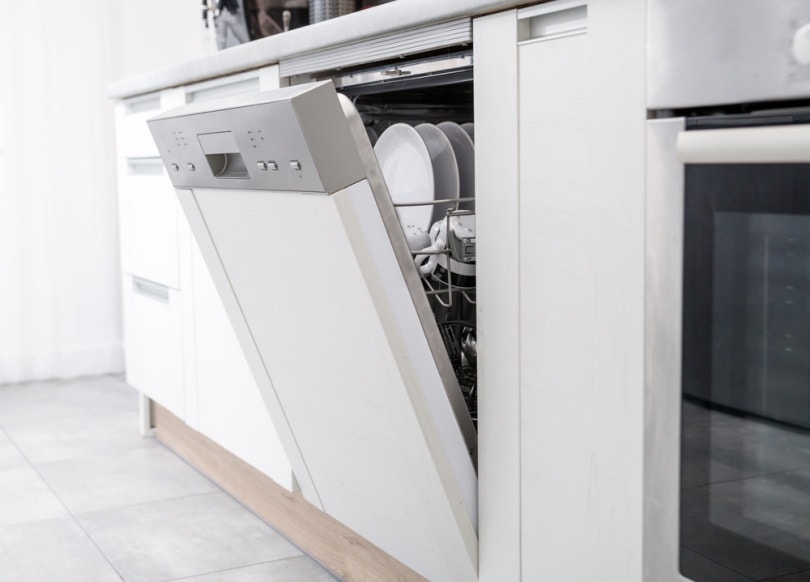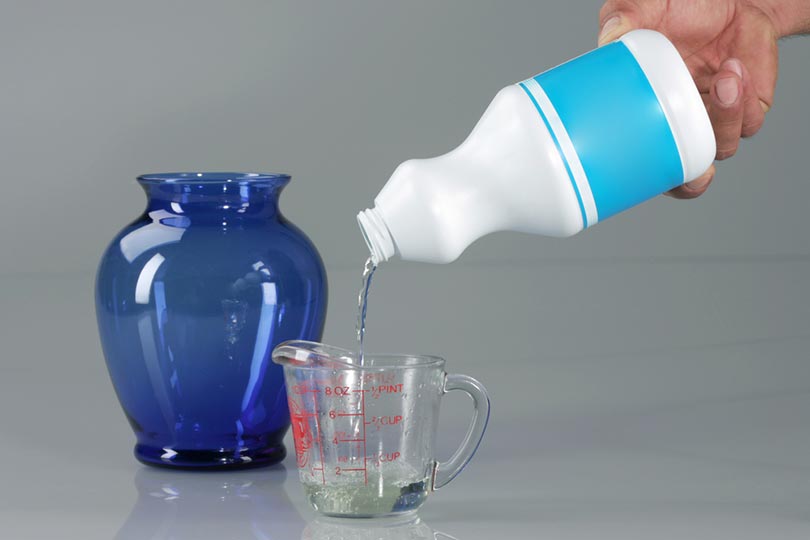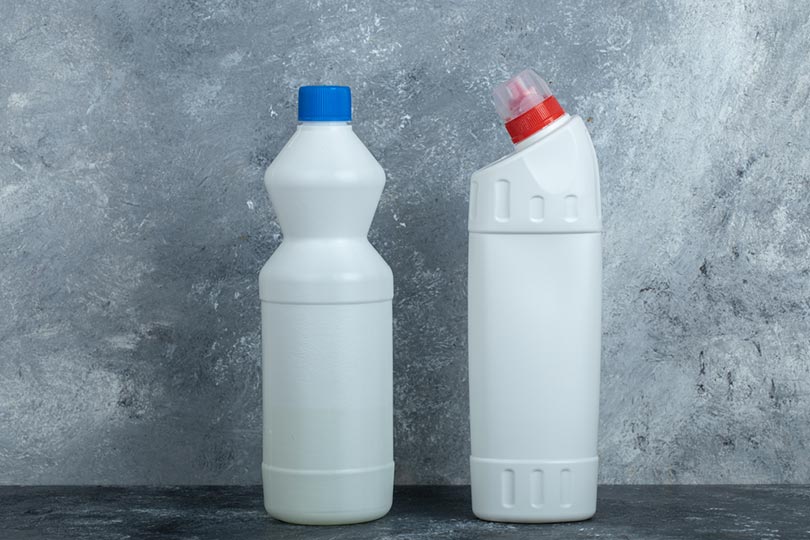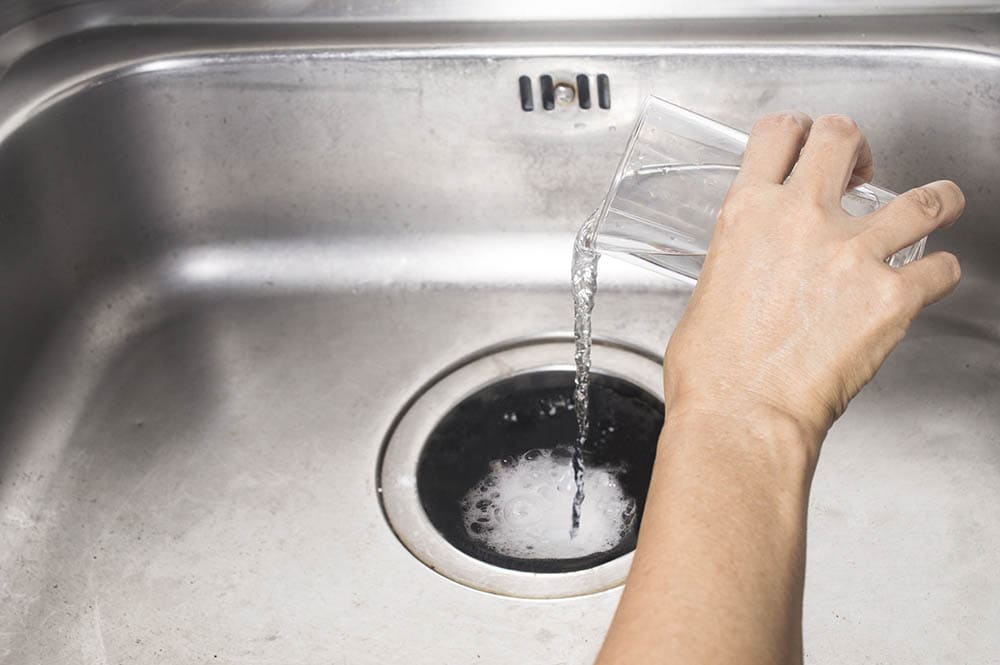Can You Clean a Dishwasher With Bleach? Tip, Facts & FAQ
-
Pete Ortiz
- Last updated:

It’s very tempting to reach for the bleach when you need to effectively disinfect something because its antibacterial power gives us peace of mind that any thriving bacteria is dead and gone after using it. As daunting as it may sound, dishwashers are common areas for bacteria and mold growth. It is typical for dishwashers as trapped food particles can build up and are always damp. If this problem is something you are battling, your instinct may be to reach for the bleach, but is it a good idea?
Bleach can be used to disinfect your dishwasher after it has been cleaned out, given that it does not have a stainless-steel interior and the manufacturer has labeled it safe for bleach.
Will Bleach Damage a Dishwasher?

Bleach should not be used to clean a dishwasher made of stainless steel or with a stainless-steel interior since it will erode and damage the dishwasher. Dishwashers made from plastic with plastic interiors can be cleaned with bleach but may cause discoloration. If the owner’s manual has advised against using bleach, it is generally because it is likely to cause damage.
Bleach is typically not recommended for regular cleaning and dishwashing but rather for deep cleaning regularly, such as monthly.
How to Clean a Dishwasher With Bleach?
If you have checked that your dishwasher is bleach safe and have decided to go ahead and use bleach for cleaning, there are two methods you can try.
The first method you can try is using diluting bleach in a spray bottle. Mix about three-quarters of a teaspoon of bleach with warm water into your spray bottle and give it a gentle shake to dilute it. Spray the areas you want to clean or spray down the whole dishwasher and wipe it down with a cloth. Once you are done cleaning, run a cycle to clean out the bleach. This method takes a bit more elbow grease, but it is very effective.
The second method is to leave the work to the dishwasher. You will need to pour half a cup of bleach into a bleach-safe bowl and place it on the bottom rack of your dishwasher. Run a cycle so the bleach can flow around the dishwasher, then once it is done, run another cycle to rinse out excess bleach.
How to Use Bleach Safely

Bleach is a strong and powerful cleaning and disinfecting product, and before cleaning your dishwasher with bleach, consider these points:
- Wear gloves and a mask, and perhaps consider wearing goggles to protect yourself while cleaning.
- Wear old clothes when working with bleach.
- Bleach should always be diluted with water.
- Mix your bleach solution with warm water since using hot water can cause a reaction.
- When you’re finished cleaning, run another hot wash to remove any excess bleach from the dishwasher.
- Never mix vinegar with your bleach since it may cause a chemical reaction.
- Before using bleach, be sure that it is not stainless steel.
- Be aware that consistent use of bleach for cleaning can weaken the seals over time.
- Make sure kids and animals are not around when working with bleach.
- Keep windows open for ventilation.
- If you are unsure, always refer to your user’s manual.
Benefits of Cleaning a Dishwasher with Bleach
Bleach is a highly potent and effective germ-killing chemical that can quickly kill most germs, viruses, and bacteria. While you need to clean your dishwasher deep every 6 months, bleach effectively cleans mold, germs, bacteria, food particle build-up, and foul odors. It quickly and instantly disinfects and cleans.
Hand washing doesn’t always kill all germs and bacteria, and adding bleach to your action plan can ensure you have killed it all. By ensuring these germs and bacteria are dead and your utensils are disinfected, it can prevent the possibility of food poisoning.
The main cause of dishwasher clogging is leftover food particles. After a while, they clog the drain, allowing dirty water to circulate. Using bleach can help unclog the drain, effectively preventing larger clogs.
Food particles, clogs, and mold can all cause long-term damage and prevent your dishwasher from working properly. Deep cleaning with bleach can help prevent this from happening and therefore help to prevent expensive repairs in the long run.
What Can I Use Instead of Bleach?
If you have decided that using bleach is not the best solution, there are alternatives that can effectively clean your dishwasher.
Vinegar

Vinegar is a great alternative for cleaning. It contains 5% acidity, which is comparable to the acidity level in many common multipurpose cleaners, so it can effectively dissolve mineral deposits, dirt, grease, and grime. It is also powerful enough to kill bacteria.
White distilled vinegar is the best for cleaning because it contains no coloring agents and will not stain surfaces.
Baking Soda
Baking soda is another safe alternative. It is an alkali substance that is potent enough to remove residue and build-up. It dissolves organic compounds such as dirt and grease, and the mineral structure of each baking soda particle acts as a gentle abrasive that cleans without leaving scratches. You can use it by sprinkling one cup onto the bottom of your dishwasher and running a hot cycle. Another option for more intense cleaning is to make “baking soda bombs.” Mix 2 cups of baking soda with 3 tablespoons of hydrogen peroxide into a bowl to form a paste. You can add a few drops of essential oil if you want to add a scent. Allow them to set onto parchment paper for a few hours, then place them onto the bottom of your dishwasher and run a hot cycle.
How to Clean Your Dishwasher
- Remove the bottom rack from your dishwasher, empty it, and remove any visible food from the bottom floor of the dishwasher.
- If your dishwasher has a filter, remove it and clean the buildup trapped inside.
- To sanitize and remove any food particles, wipe down the dishwasher seals and around the bottom.
- Remove the dishwasher spray arms from the dishwasher if you want to clean them thoroughly. Wipe them with a damp cloth and unclog any debris or food bits from the spinner arm’s holes with a toothpick
- Run a cycle using your cleaning product of choice.
In Conclusion
Bleach can be a highly effective cleaning and disinfecting method for your dishwasher, as long as it is not stainless steel and the manufacturer has labeled it safe for bleaching. It is a good idea to clean your dishwasher’s bleach every other cleaning cycle, as long as you do so safely.
The bottom line is that it is a safe cleaning procedure and is sure to kill 99% of bacteria and germs, but if you choose not to use bleach, there are other great cleaning alternatives. Your dishwasher will also need to be deep cleaned regularly by cleaning the filters and removing any food buildup and debris.
Featured Image Credit: Leszek Glasner, Shutterstock
Contents


